The Long Road to State Companies Super-holding
The plan for a super-holding for state-owned enterprises dates back to the New Order era. The SOEs Ministry will be replaced by a giant corporation.
maaf email atau password anda salah
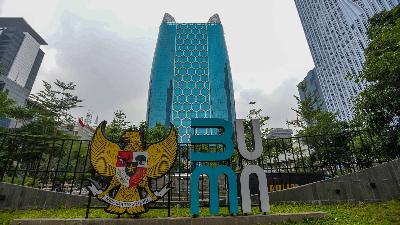
The plan for a super-holding for state-owned enterprises dates back to the New Order era. The SOEs Ministry will be replaced by a giant corporation.
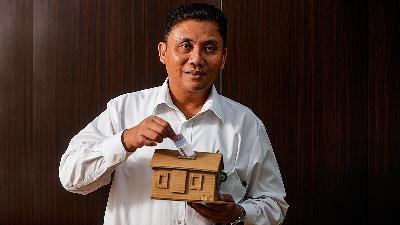
BP Tapera Commissioner, Heru Pudyo Nugroho, explains the compulsory 3 percent cut of monthly income for the public housing savings scheme.
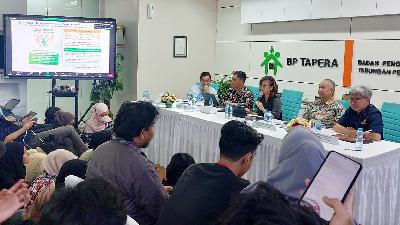
BP Tapera promises a high yield to depositors. Depositing funds in government bonds is considered less progressive.
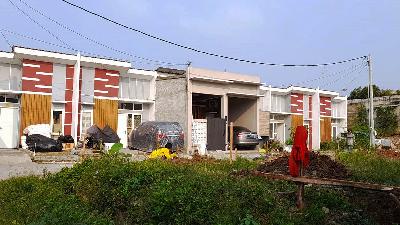
Workers and entrepreneurs consider that the Tapera policy overlaps with the MLT program. Developers continue to benefit from both programs.

The government will make the Tapera program mandatory for all workers. A way to shift the budgetary burden to the people.

Too many hazardous impacts of implementing Tapera. Prabowo would be better off scrapping it.
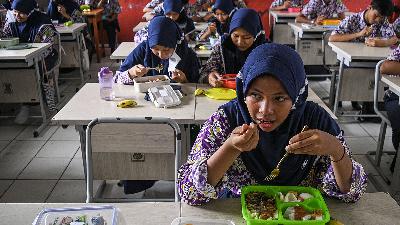
Teachers reject using the school operational assistance fund to finance a planned free lunch program. It can violate the National Education System Law.

State Secretary Pratikno is involved in Jokowi’s various political operations. He lobbied the Constitutional Court into opening the way for Gibran.
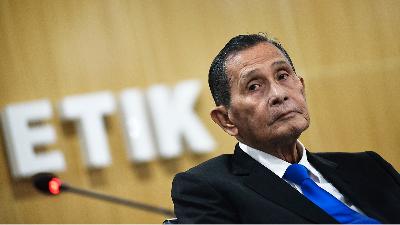
The Corruption Eradication Commission’s Supervisory Board indicated that illegal levies have been collected at detention centers since 2018. It is suspected that these payoffs made their way to government officials.

Supervision of workers’ health and safety in smelters is considered inadequate. There has been a lack of specialized inspectors following the transfer of supervision authority.
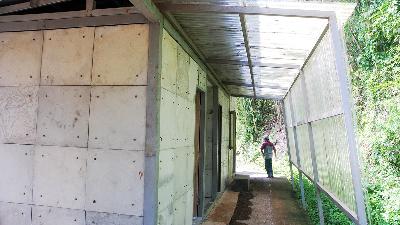
An alumnus from the Bandung Institute of Technology (ITB) built a house made of materials from disposable diapers, reducing the need for sand in construction by 20-40 percent.

Freeport objects to the copper export duty. It is considered as failing to comply with the previous agreement.

The Supervisory Board of the KPK is preparing to impose sanctions on Firli Bahuri. The internal KPK is accused of being uncooperative.
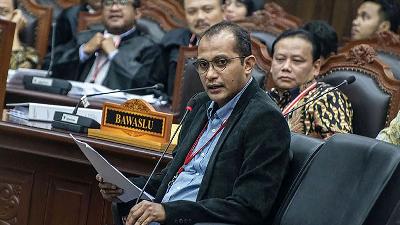
Eddy Hiariej was an expert witness in 800 court cases before becoming Deputy Justice and Human Rights Minister. He often assisted the police.

Transpersonal psychology is a new branch of psychology that incorporates religion and spirituality.
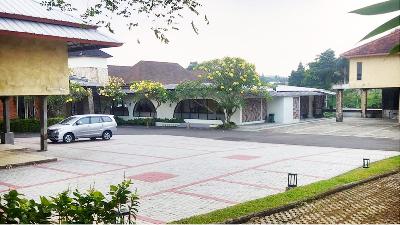
Frans Kaisiepo built dormitories for Papuan youth. He bore the burden of the Papua referendum or Pepera to his dying day.
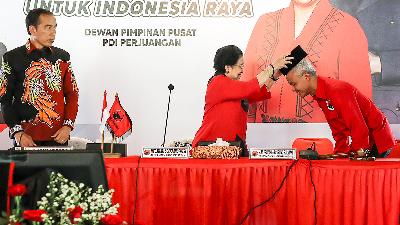
Megawati Sukarnoputri chose Ganjar Pranowo as her party’s presidential candidate early this year. The public perception of female leaders was factored into her decision.
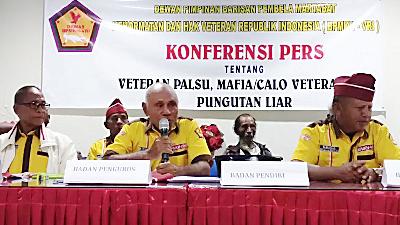
The LVRI reports thousands of fake veterans of Operation Seroja in East Timor to various government agencies. Brokers were involved in the deceit.
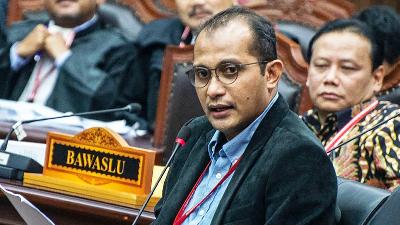
Deputy Minister of Justice and Human Rights Eddy Hiariej often becomes an expert witness in court. He is accused of receiving Rp7 billion.
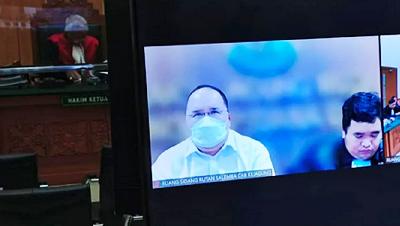
Greed results in many instances of fraud under the guise of cooperatives. Indosurya KSP took advantage of the lack of a supervisory agency.
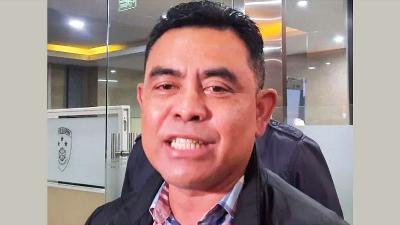
The police are preparing new criminal charges against the Indosurya Saving and Loan Cooperative. It is being accused of having criminal intent from the outset.
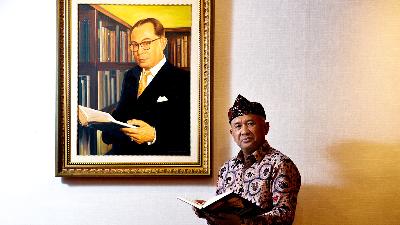
Minister of Cooperatives and Small and Medium Enterprises Teten Masduki on Indosurya Saving and Loan Cooperative and the loopholes in the Cooperative Law.

Interest in traveling by sleeper bus continues to grow. Operators are competing to offer luxury and innovative services. The coachbuilding industry is also reaping the benefits.

The PPSK Law delegates a number of new powers to the Financial Services Authority. From supervising crypto assets, venture capital, to gold banks.

Hyperion, the tallest tree on earth, is not alone. Its arrogance is the fruit of fantasy.
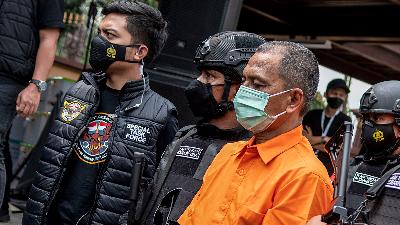
Ferdy Sambo exploited Red and White Special Task Force personnel to fabricate the scenario of Brig. Yosua’s murder. His former subordinates have been sanctioned and fired.
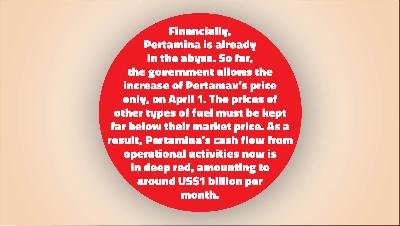
European Union’s plan to embargo Russia again rises world oil prices. The increase in fuel prices is a bet for Pertamina’s finance.

Pandora Papers reveal ownership of assets and shell companies in tax haven countries. Several Indonesian politicians and businesspeople are recorded in it. This report is a result of the collaboration of Tempo in a network of 150 media under the coordination of the International Consortium of Investigative Journalists (ICIJ).

The Supervisory Board of Corruption Eradication Commission (KPK) writes their objection to Tempo's report.
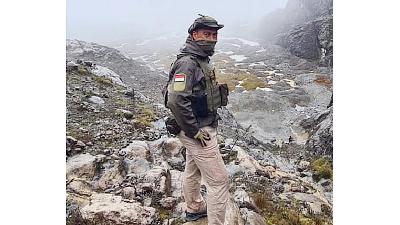
The Chief of the Papua Office of the State Intelligence Agency (BIN) was killed while inspecting a checkpoint in the Beoga District, Puncak Regency. He had been raising public support in the area of operation.

The Attorney General's Office (AGO) has yet to take action against other perpetrators in the Asuransi Jiwasraya investment fund scandal. The Financial Services Authority bears most of the responsibility.
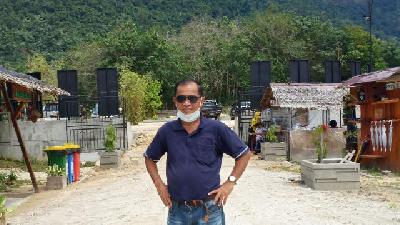
Munaldus Nerang grew up in an ultra-poor community. He established a village credit cooperative to improve his neighborhood.

Evaluation by the Corruption Eradication Commission (KPK) Supervisory Council fell on deaf ears. Further evidence that the revised KPK law is hampering corruption eradication program.
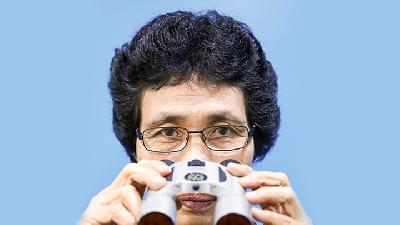
Barely two months after its establishment, the Corruption Eradication Commission (KPK) supervisory board already received a complaint against the commission leadership for alleged ethic violation.
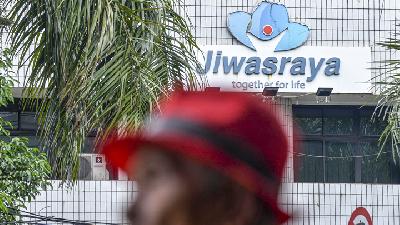
An investigative audit into the Jiwasraya case has begun. Supervisors at financial institutions and state-owned enterprises are also being targeted in the audit.

WE, the credit union cooperatives movement in Kalimantan, representing 56 cooperatives with 1,188,116 members and total assets worth Rp15.3 trillion, herewith declare our rejection of the Bill on Cooperatives currently under parliamentary discussion. We also request that the House of Representatives suspend the debate before taking it to the plenary meeting.

A discussion about the Bill on Cooperatives in lieu of Law No. 25/1992 is underway.
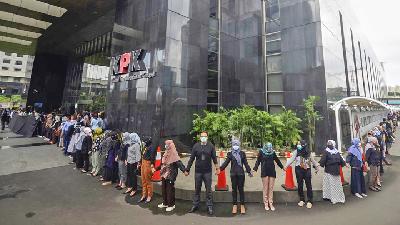
A KPK sting operation at Hotel Borobudur fell apart when team members was spotted in the crowd. The ensuing confrontation purportedly ended in assault.

An experiment turns half a century
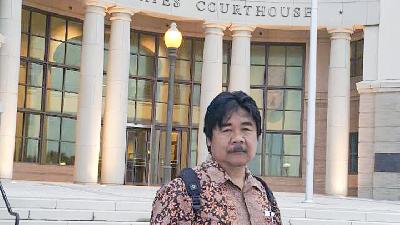
A court rescinded a lawsuit filed against an expert witness in forest fire arson case.
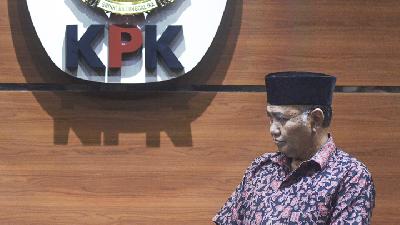
The police is looking into alleged tampering with corruption watchdog KPK evidence in the case of Hariman Basuki’s meat import bribery. A CCTV recordi

The performance of the Indonesian Stock Exchange last year did not go smoothly. The exchange index is not related to the performance of the Stock Exchange directors.

Nur Alam has taken an expert witness to court. The non-active Southeast Sulawesi governor is under attack for dishonoring expert witness immunity.

Inmates at a correctional facility in Sungguminasa, Gowa Regency, are raising catfish. Now their fish are sold at a hypermarket in Makassar.

In December 2017, the Indonesian Navy began reinforcing its supervision of the Indonesian waters following a report from the National Narcotics Agency (BNN)

President Joko Widodo visited Afghanistan and met President Ashraf Ghani in Kabul on February 29. In the meeting, the two leaders agreed to improve the two countries’ economic cooperation. "I have asked the ministers to push business to business contact," said President Jokowi.

Tahir Ferdian is an important figure behind the Millennium Group. His luck began with property business.

Tana Gayo’s coffee farmers can speak fluently on international quality standards for coffee. Cooperatives are the backbone of Aceh’s coffee production.

THE controversy on Hizbut Tahrir Indonesia's (HTI) dissolution continues. Maswadi Rauf, a political observer from the University of Indonesia, believes dispersing HTI is not an infringement on democracy; however, the government must first prove that the Muslim organization has violated Indonesia's five guiding principles, Pancasila. "If there is evidence, I don't see a problem," said Maswadi. "Taking fundamental rights away from the guilty is within reason." A thief's basic rights, for example, are taken away (as punishment) when he violates public order, he explained.

The electronic ID card (e-KTP) corruption case is giving Home Affairs Minister Tjahjo Kumolo a big headache. For the past year and a half, some 68 of his subordinates have been questioned by the Corruption Eradication Commission (KPK). "This has clearly affected the mental state of the ministry's personnel," said Tjahjo.

THE restructuring of Asuransi Jiwa Bersama Bumiputera 1912 has yet to happen. In fact, the state of finances of this, the oldest insurance company in Indonesia, is very worrying. As of the end of last year, Bumiputera's assets were worth just Rp15 trillion, half of the company's liabilities of Rp30 trillion. That is why the Financial Services Authority [OJK] completely reworked the management of Asuransi Jiwa Bersama Bumiputera 1912 in the middle of last month. It then appointed a number of people as statutory managers. Their job: to source fresh capital to inject. "We must protect the fates of our 6.7 million policy-holders," the OJK Deputy Chief Supervisory Commissioner II for the Non-Bank Financial Industry, Dumoly F. Pardede, told Tempo Ayu Prima Sandi by telephone last week.
On what basis did the OJK say Bumiputera is unhealthy?
In the last five years, its claims have risen very significantly, while the income from premiums did not match that. In the end, over the past five years, the management sold off assets to cover claims. If they had waited until next year, its risk-based capital (a ratio for measuring financial health) could go awry. We had to take over Bumiputera through statutory means to source new investors.

The prosecution sent the Ahok blasphemy case to court. Witnesses and experts reinforce the charges against him.

This is a stage performance in which all the performers are blind. The audience are asked to cover their eyes so they, too, can experience this new theatrical experiment.

EWA Wojkowska and her partner and Kopernik co-founder, Toshi Nakamura, want to prove that simple technologies can make a huge difference to needy people. Wojkowska worked for the United Nations in Timor-Leste, Thailand and Sierra Leone and saw problems in the rural areas that were not being addressed, including the lack of lighting and clean water.
Meanwhile, they both realized that there are simple solutions to those problems. They could be solar-sourced lighting, biomass cook stoves and water filters that are east to produce but not necessarily available or accessible to the people who can really benefit from them.

President Joko Widodo is preparing his second cabinet reshuffle. One measure of assessment being used is the official report on the performance of ministries and state institutions, which was submitted to Vice President Jusuf Kalla in December last year. Some ministers who created a stir might be replaced.

Various traditional and cultural rituals in Indonesia can be quite expensive to carry out. Among the people of Toraja in South Sulawesi, for example, one traditional ceremony can cost billions of rupiah. Getting out of such rituals is not easy, although many communities around the country are determined to let go of certain traditional requirements that can often impoverish them, such as the villagers of Borokanda, at Ende Lio, Flores.
Director of Religion and Traditional Faith at the Education and Culture Minister, Sri Hartini, said that a simplification of rituals can be achieved through deliberations without reducing the substance of tradition. "Only the superficial aspect is simplified," she told Tempo English reporters Isma Savitri and Dahlia Rera in an interview, three weeks ago. Excerpts:

Soon after Joko Widodo was elected president, he declared food self-sufficiency to be one of his priorities. Tens of thousands of tractors were bought and distributed to farmers and a large budget was allocated to subsidize seeds and fertilizers. Indonesia is one of the world's top rice consuming country and a net importer of the staple. The President stressed that the nation must achieve food security within three years.
Slamet Budijanto, an expert in food science and technology from the Bogor Institute of Agriculture (IPB) maintains that we should pay more attention to the diverse food sources available in the country and rely less on rice. Budijanto spoke to Nabiha Shahab from Tempo English on how Indonesia can achieve food self-sufficiency. Excerpts:

At a meeting with his Indonesian counterpart Foreign Minister Retno Marsudi in Jakarta recently, Singapore's top diplomat Vivian Balakrishnan conveyed Singapore's interest to intensify cooperation in several areas, such as manpower development. Balakrishnan was on a two-day visit to Indonesia last week.
The cooperation will include a scheme to help Singaporean companies recruit personnel from Indonesia. Balakrishnan said Indonesian universities will be able to provide graduates with relevant skills in the digital world. "We are thinking of launching a scheme, in which Singapore companies will be able to recruit their human resources here and provide services for the rest of the world," he said.

Eni Lestari Andayani's cellphone never stops ringing. She might as well be a walking, talking call center. Almost every day, Eni, 36, takes between five to 15 calls or short messages through WhatsApp and Facebook. Like her, the callers are domestic workers holding jobs in Hong Kong. But to them, she has become the confidante whom they can pour out their grievances.
The number of callers further increased seven years ago when Eni came to be chairperson of the International Migrant Alliance, an alliance of migrant workers from 32 countries. The grievances vary, from working relations with their employers to their rights over family matters. The latest case involved a worker form Pati, Central Java, who complained about the Indonesian government's new data recording system that implicated her in forging documents. As a result, since December 11, the person has been detained in a Hong Kong prison.

TO promote organic farming these past three years, Putro Santoso Kurniawan has been managing the 100-member Association of Indonesian Farmers' Cooperatives in Bogor, West Java. Through these cooperatives, farmers can sell their produce directly to consumers. "This is our way of ensuring that the prices of organic products remain accessible to the farmers," said 40-year-old Putro, a graduate of the Bogor Institute of Agriculture. He claims the limited production at the moment and the long supply chain have made organic products expensive to consumers. "This process benefits the distributors," said Putro, but discourages buyers. As a result, farmers become discouraged and in the end, many choose to go back to using chemical-based fertilizers.
Two weeks ago, Putro spoke with Tempo English by telephone on a number of ways and strategies of spreading the concept of organic farming and how to make it succeed. Excerpts:

As the Swedish minister for strategic development and Nordic cooperation, Kristina Persson feels it is important to identify future challenges and assist other institutions to devise policies in response to those challenges. She has had more than 40 years of experience in the public sector. She spent the late 1970s in the Swedish Trade Union Confederation before moving to the Council of Nordic Trade Unions in 1982.
Understandably, she is passionate about developments affecting the workforce in her home country. Persson said Sweden today faced a major challenge with the advent of digitalization and automation that could replace a large number of jobs, especially in the manufacturing and service sectors.

SETYA Novanto, speaker of the House of Representatives (DPR), started his meeting with Vice President Jusuf Kalla last Monday by talking about plans for his daughter's wedding. Their conversation then moved on to the real reason for the meeting. When Setya met with Freeport Indonesia CEO Maroef Sjamsuddin, he allegedly exploited the names of the President and the Vice President without authorization. Kalla expressed his disapproval. "Why did you use the President's and my names?" said Kalla, as repeated by someone who works closely with the Vice President.
The DPR's speaker said he had taken businessman Muhammad Riza Chalid along to meet with Maroef, but denied that he had misused the President's name. Setya said, "I swear to God: I didn't bring Bapak's name into it!" In a sarcastic tone, Kalla snapped at Setya, "Really, I only asked for nine percent." Setya has denied the news that Kalla was angry with him at the meeting. "Pak JK is someone I greatly respect," Setya told Tempo last Thursday, referring to the Vice President by the latter's initials.

FOR Taufik Hendra Kusuma, the fifth economic policy package gave a new breath that he had been awaiting for a long time. Announced by the government on Thursday two weeks ago, the policy is expected to stimulate the property business once facing its worst time. "Many opportunities can be explored if the policy is truly implemented," said Taufik on Friday two weeks ago.
According to the director of finance and resources of Hutama Karya Realtindo, there are two features in the fifth package that can contribute to property business revival. First, it is the revaluation of assets allowed to state-owned enterprises (SOEs) and private companies. The government pledges to provide 3 to 6 percent tax rate reduction facilities for companies submitting revaluation proposals until the end of next year. The second is the elimination of double taxation for real estate investment trusts or REITs.

The visit last week of Denmark's Queen Margarethe II and her husband Prince Henrik to Indonesia is one indication of improving relations between the two countries. Beyond the usual protocols were serious meetings and discussions between Indonesian government and private sector representatives with a Danish delegation 62 business people, the first of such in the 65 years of relations between the two countries.
"Relations between Indonesia and Denmark will change from a cooperation based on development assistance to a commercial or business-based cooperation," said Danish Foreign Minister Kristian Jensen, who was part of the delegation.

IN the fall of 1965, the British Foreign Ministry summoned George Frank Norman Reddaway to brief him on a special mission. The 47-year-old diplomat's star was on the rise. The ministry gave him a special task: to take over its operations in Indonesia that the ministry and the British intelligence agency MI6 had been running from Phoenix Road, Singapore. Reddaway was a propaganda expert.
Prior to Reddaway's briefing, Andrew Gilchrist, then British ambassador to Indonesia, had arrived in London. He was the one who persuaded British Foreign Minister Joe Garner to send Reddaway to Indonesia. Gilchrist said the secret operation to oppose Sukarno was not going well and he needed help.

Pooling Resources
Educators have founded the Teachers' Credit Union on Adonara, a small island off the eastern coast of Flores. From just a few founding members, the cooperative now has more than 10,000 members.

ILLEGAL logging and forest fires have became daily news in Indonesia. It causes untold damage to the environment, and our forests continue to disappear. "There must be a drastic change of mindset to overcome this problem," said Yanto Santosa, a lecturer of Forest Resources Conservation and Ecotourism at the Bogor Institute of Agriculture (IPB). Yanto, who is a graduate of the Languedoc Science and Technical University in France, is also the initiator of unique ways to conduct forest conservation, which requires people's participation. His expertise has been used in a number of UN Development Fund projects on climate change. Tempo English reporter Amanda Siddharta interviewed him recently at IPB. Excerpts:

After sitting members of the House of Representatives' (DPR) Finance and Banking Commission XI were handed a bill on revisions to the Bank Indonesia Law, the temperature in the room seemed to rise a few degrees. As far as commission members knew, preliminary discussions were set to start that morning.

ILLEGAL logging and forest fires have became daily news in Indonesia. It causes untold damage to the environment, and our forests continue to disappear. "There must be a drastic change of mindset to overcome this problem," said Yanto Santosa, a lecturer of Forest Resources Conservation and Ecotourism at the Bogor Institute of Agriculture (IPB). Yanto, who is a graduate of the Languedoc Science and Technical University in France, is also the initiator of unique ways to conduct forest conservation, which requires people's participation. His expertise has been used in a number of UN Development Fund projects on climate change. Tempo English reporter Amanda Siddharta interviewed him recently at IPB. Excerpts:

In a major victory for conservationists, Asia Pacific Resources International (APRIL), Indonesia's second-largest pulp and paper producer, has vowed to stop logging Indonesia's forests.
The announcement follows a 2013 pledge by Asia Pulp and Paper (APP)the country's largest pulp and paper firmto stop cutting down trees. Together, the two firms account for over 80 percent of the pulp and paper produced in Indonesia, according to Greenpeace.

Drone or unmanned aerial vehicles (UAV) has become an important information component. Taking photographs or mapping from a certain height no longer needs the services of an aircraft or a helicopter, which tends to be very expensive.
This crew-less aircraft has become a trend among technology nerds. One of them is Riza Muhida, a robotic expert from Surya University. He is currently completing the production of a military drone fueld by solar power. This drone is 2.5 meters in diameters. "Our target is to have it done by end of the year," said 46-year-old Riza. Satwika Movementi and Syari Fani from Tempo interviewed Riza, a graduate of Osaka University by telephone in April, on two separate occasions. Excerpts:

ASSURED to become the next manager/operator of the Mahakam Block, Pertamina has announced its readiness to collaborate with the old operators as well as with other parties, including provincial governments. Pertamina CEO Dwi Soetjipto visited the Tempo office last week and gave the following comments:

When traders are asked whether the current Rp13,000 per USD level is the currency's comfort zone? You'd most likely get a qualified answer. Even those that confirm say it is temporary. But how long is temporary?
Here, you get a mixed response.But most will point to when the Fed will raise US interest rates. Those that interpret the most recent US economic numbers as a weak recovery, expects a delay in the US rate hike to the third or fourth quarter of this year.Others that interpret the same numbers as a more solid recovery foresee an earlier mid-year rate hike.

With the rupiah trading above the Rp13,000 per US dollar threshold a few times last week, people are starting to wonder whether they should be more worried about the state of the Indonesian economy.
This growing concern stems from an apparent disconnect between improving economic data and sizable inflows of foreign funds into the capital market with a currency, that instead of strengthening, actually continues to weaken.

In an industry dominated by men, a sharp, straight-shooting woman has risen head and shoulders above her counterparts to become one of Indonesia's most successful business people. Eka Sari Lorena Soerbakti is chairperson of the Organization of Land Transport Owners (Organda), most probably because she happens to be the managing director of the companies Eka Sari Lorena Express and Eka Sari Lorena Logistics, the director of Eka Sari Lorena Transport and the deputy director of Eka Sari Lorena Holdings. She is also on the Research Committee for Transport and Logistics at the Yogyakarta-based Gadjah Mada University.

Since Susi Pudjiastuti was appointed Maritime Affairs and Fisheries minister four months ago, her mission has been quite simple, and that is increase domestic fish production. But she also wants Indonesian fish exports to increase in the world market.
According to Susi, all that can be achieved by eliminating fish theft, which for years had been carried out by other countries operating on Indonesian waters.

In a bid to promote a more sustainable mode of transportation, Norwegian Ambassador Stig Traavik and Danish Ambassador Casper Klynge, started the #VikingBikingIndonesia movement. They collaborated with the Bike2Work community and held their first event around Jakarta's National Monument on February 13. #VikingBikingIndonesia is planned to be a bimonthly event.
Traavik, who rides his bicycle to work every day said that his 10-minute morning commute was the best part of his day. "I want more people to have that experience, especially in the Jakarta traffic. It's fun to bike," he told Tempo. Traavik also mentioned that they wanted to promote a healthier lifestyle. "The biggest threat to our health now is inactivity."

He once said he would freeze the export license of Freeport Indonesia, but then Mining Minister Sudirman suddenly changed his mind. When the validity of Freeport's export license ran out on January 25, Sudirman not only extended the license, he signed an MoU to extend the contract renegotiation period. Last week, he spoke to Tempo reporters, Gustidha Budiartie, Bernadette Christina and Ayu Primasandi at his home in South Jakarta, to explain his decision. Excerpts:

A small wooden hut located at the center of Oegenetan village is filled with a large pile of organic fertilizer. Two large barrels of liquid fertilizer sat idly on one corner. Both are filled with 10 liters of organic liquid fluid for crops. A musty odor filled the air of this small fertilizer factory. While the air smelled of rotten mulch, the men who worked there did not seem to mind.
Alfonsius Konan, 34, is part of a team given the task of producing organic fertilizer for the local Nonggup cooperative business unit. They spend every Saturday cutting grass, pulverizing banana stem and corm, and mixing them with the livestock manure that they get from the local farmers. For every such activity, they can produce at least 10 liters of liquid fertilizer and around 50 kilograms of compost.

HIS athletic body is covered with tattoos, but I Gede Ari Astina is no hardened ex-con as myth would have it. Jerinx, as he is called by his friends, is actually a warm and caring person. A month ago he told Tempo journalist Prihandoko about his efforts to block the Benoa Bay reclamation project and other activities.
Why did you decide to join the movement to stop the Benoa Bay reclamation?
I am a close friend of Gendo (Wayan Gendo Suardana). He is a coordinator of ForBali, an alliance of NGOs rejecting the plan to reclaim Benoa Bay. I often take part in demonstrations with Gendo, who has been a true activist since his college days in the 1990s. For some reason, when I became part of Superman is Dead (SID), my relationship with the activists became even stronger. I learnt how to infuse idealism into my music. I joined ForBali because I felt the call.

After pushing through the dense forest dominated by sugar palms, the sky became visible again. We had arrived at the plantation owned by Jemi Pandei and his wife, Thris Pontoan, in Tomohon. More than 2,000 chili pepper bushes covered the steep slopes at the foot of Mount Tatawiran. To either side were planted corn, tubers, bananas, cloves and nutmeg. This is a food repository in Minahasa, home to North Sulawesi's ethnic majority.
That afternoon the owner was planting chilies, known here as rica. With just a one-liter container of seedlings, Jemi can plant rica on a half-hectare of land without using fertilizer or carbide. The harvests are sold at nearby Beriman Tomohon Market. "For us, rica is as important as salt," said Jenny Karouw, head of the North Sulawesi Office of Industry and Trade.

More than 10 gunny sacks of cacao kernels were arranged in a row in the front room of Comextra Maora's storehouse in Maumere on the island of Flores in Sikka regency, East Nusa Tenggara. Agus Layni, coordinating team leader of the cacao exporting company, told two employees to examine the sacks' contents. He just wanted to make sure there were no sticking kernels and that they were intact and without epidermis and fungi.
Water content in every cacao kernel is measured with digimost. Undertaking the process revealed that water content in the kernels was around seven percent, in accordance with export standards. "If it is more than 18 percent, we will not buy it," Agus, 32, told Tempo.

Dozens of trucks loaded with construction materials came and went from state-owned pawnshop operator Pegadaian's office on Jalan Andi Mappanyukki in Makassar, South Sulawesi. The company was building a 10-storey hotel. The building will hold 120 rooms and facilities such as a ballroom and swimming pool. "Operations are expected to begin in the new year," Pegadaian director Ferry Febrianto told Tempo on Monday two weeks ago.
The project is one of nine hotels that Pegadaian has begun or will begin with construction this year. In addition to Makassar, the company is building hotels in Surabaya, East Java, and Pekanbaru, Riau. As with Makassar, the hotels in these two cities will be constructed on land that has been used for Pegadaian branch offices. "We're building them all on land owned by Pegadaian," Ferry explained. Six more hotels are in the pipeline, with three in the Central Java cities of Tegal, Pekalongan and Semarang; two in Yogyakarta, with one near Malioboro and another west of the Tugu monument; and one in Gresik, East Java. The construction of these six hotels will begin this month and continue through next year.

KAREN Agustiawan's meeting with the head of the United Federation of Pertamina Labor Unions (FSPPB), Ugan Gandar, was supposed to deal with a cooperation agreement. Then the subject shifted to a hotter topic. "Is it true you're going to resign?" Ugan asked Karen, CEO of Pertamina, the state oil and gas company.
Karen did not deny it. The 56-year-old woman confirmed her plan to step down. At first, she said she wanted to focus on her family and give lectures at Harvard University in the United States. Unsatisfied with that answer, Ugan pressed further. "Finally she admitted she was resigning because she refused to be victimized," Ugan told Tempo.

A burly man with a crew cut sat alone at the Dunkin' Donuts counter in the Pasar Senen Train Station, Central Jakarta. It was a week before Lebaran, the holiday at the end of the Ramadan fasting month. The man kept glancing at the watch on his wrist. Soon a well-dressed man approached and passed him an envelope.
After checking its contents, the burly man shook hands with the man and left. "That was just a customer who asked for help finding a ticket for mudik (annual Lebaran homecoming)," Taufik, the man who delivered the envelope, told Tempo a few moments later. He openly admitted he was a ticket scalper.

To Ligaya Tumbelaka, 54, Sumatran tigers are rare species of charismatic carnivore that should be protected. So, when in 1992 she was offered the job to become the only studbook keeper of this species in Indonesia, the Tangkuney, North Sulawesi-born Ligaya did not hesitate to take it. At that time, she had just completed specializing in the subject of primates at the Bowman Gray School of Medicine in the United States.
Ligaya's work at the Veterinarian Faculty of the Bogor Institute of Agriculture (IPB) is quite unique. She is responsible for seeking out the right mate for tigers in captivity throughout Indonesia. Tempo English contributor, Amanda Siddharta interviewed her in July at the IPB campus. Excerpts:

Making sedekah (contributions) and giving zakat (alms or charity) for Rini Rahmawati, a 51-year-old executive at a bank in Jakarta, has become a necessity. While setting aside 2.5 percent of her income for zakat, she also makes voluntary contributions. Rahmawati is convinced her donations have brought her good fortune.
"I'm already fulfilled in worldly terms. Now when I earn a windfall, I just share it with other people," she said. At first she was reluctant to be frank about her alms-giving. "I don't want to show off."

THE recommendation from the Indonesian Broadcasting Commission (KPI) to revoke the permits of two television stations that have become 'spokesmen' for presidential and vice-presidential candidates deserves support. Unfortunately this recommendation has run up against the brick wall of the Communications and Information Ministry.
Frequency bands are public property, and are limited in number. Anyone can publish a newspaper and distribute it wherever they want to, but they cannot simply broadcast television or radio signals because the frequencies used are determined by the 'lessor' according to the law. The KPI regularly carries out evaluations to determine whether to extend or revoke licenses. The yardstick used is compliance with regulations.

Pertamina Geothermal and PLN agree to revise geothermal electricity price in seven projects, pending BPKP's decision.

One week ahead of the elections, more than 2 million damaged ballot papers have yet to be replaced. Extra sheets provide a way for parties to commit electoral fraud.

Doctor Frits Kakiailatu led the medical response to paralyzed victims of Operasi Seroja, or Operation Lotus, in East Timor. He also pioneered kidney transplant operations at the Gatot Soebroto Army Hospital.

Ali Murtopo's supporters are believed to have manipulated student protests to benefit their own agenda. The operations were led by his intelligence personnel.

First created in the 1920s, the Batak operaa people's theater specific to the North Sumatra regionenjoyed its highest popularity during the next 60 years, before its attraction declined, gradually fading altogether from the scene. Today, a group of artists grouped under the Batak Opera Training Community (PLOt) led by artist Thomson Hutasoit are determined to revive it. They removed the stigma of embarrassment surrounding this traditional performing art, spreading a 'Batak opera fever' among youths. From August to November this year, PLOt went on tour in North Sumatra, Jakarta and even in faraway Germany, to perform their newest production. A special report by Tempo English.

He was known as Suharto's right-hand man since they were assigned to the Central Java Diponegoro Military Command. They met again at the Army Strategic Command, leading a number of intelligence operations. He recruited many people, turning them into spies. The impact of his work can be found in Papua (known as Irian Jaya during Suharto's New Order regime), Malaysia and East Timor. Like a double-edged sword, his special operations resulted in both victory and depravity.

Democrat politician Hayono Isman helped Gakoptindo obtain its soybean import quota. The Inkopad chairman denies reports that the quota has been allocated to his cooperative.

A city with 1,150 years of history, built on steel and coal production that fueled Germany's industrial prowess, Essen is now a hotspot for culture and the performing arts.

The Traffic Division's cooperative runs many businesses, including a factory to produce vehicle license plates.

Meditation expert Suprapto Suryodarmo recently produced an event which brought together the worlds of architecture, Buddhist spirituality and art in various performances at Borobodur Temple.

The Justice and Prosperity Party has damaged the coalition once again. Without resolute action, the president himself will be held hostage.

The government has suspended loans for low-cost housing, causing thousands of housing developers to cry foul.
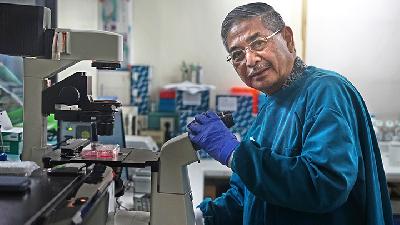
Ever since President Joko Widodo mentioned the need for decentralized coronavirus testing, Eijkman Molecular Biology Institute’s phone lines have not stopped ringing.
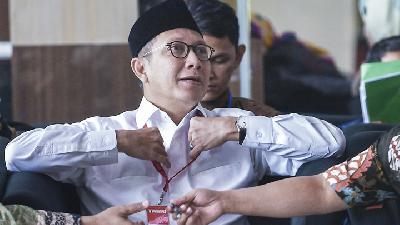
The KPK has strong evidence of the involvement of Minister of Religious Affairs Lukman Hakim Saifuddin in a bribery case implicating former PPP General Chairman Muhammad Romahurmuziy. There is proof of receipt of funds and a meeting with the suspect.
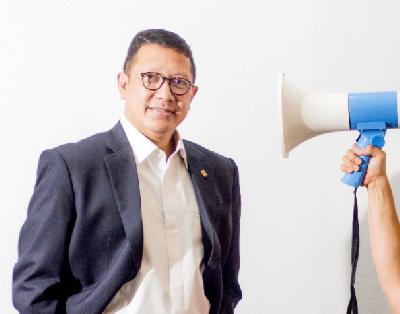
Religious Affairs Minister Lukman Hakim Saifuddin once again found himself the target of scorn.

For Religious Affairs Minister Lukman Hakim Saifuddin, this year's haj pilgrimage turned out to be an ordeal he had never bargained for: having to deal with two major tragedies in the Holy Land in a matter of weeks. One was the crash of a construction crane over the Haram Mosque and the other was the fatal stampede at Mina, when thousands of pilgrims rushed all at once toward the stone-throwing ritual. More than 100 Indonesians died as a result.
Lukman, a United Development Party (PPP) executive and head of the Indonesian haj pilgrims, along with the Haj Pilgrimage Organizing Committee (PPIH), had to bear responsibility for the two tragic incidents. In particular, he felt he needed to be directly involved in the process of seeking and identifying the Mina tragedy victims. It was a heavy burden to bear, given the constant public pressure for an explanation for the two incidents.

AFTER his preoccupation with the controversy over the Javanese-intonation reading of the Qur'an, Religious Affairs Minister Lukman Hakim Saifuddin now must focus his attention on the Nusantara Islam issue. This involves the debate of a genre of Islam that is unique to Indonesia, one that is being unofficially supported by the government.
The rejection by hard-line Islamists has not dampened the government's plan to keep pushing for a Nusantara (archipelagic) Islam. "They got it wrong. Nusantara Islam is not an ideology," said Lukman, in a special interview with Tempo reporters Sugiharto and Sunudyantoro, last week.

OWNERS of warung makan (small eateries) are hopeful they can remain open during the month of Ramadhan, because Religious Affairs Minister Lukman Hakim Saifuddin in his Twitter account recently tweeted that such establishments should not be forced to close shop just to honor those who fast. He stated that those who are not obliged to fast must also be respected.
Predictably, his statement caused a public uproar. Some tweeps saluted Lukman's view, but many others disagreed with his view. Equally predictable was the media, which refused to entirely support the stance of the United Development Party (PPP) politician. A mere tweet, Lukman wryly commented, twisted by some people, had led to a counter-productive debate.

East Kalimantan Governor Suwarna, indicted for corruption, claims he was blackmailed by a KPK investigator. The KPK should work with the AGO to investigate this thoroughly.

The absence of money evidence could free two prosecuting attorneys charged with blackmailing Jamsostek Director Achmad Djunaidi.
Independent journalism needs public support. By subscribing to Tempo, you will contribute to our ongoing efforts to produce accurate, in-depth and reliable information. We believe that you and everyone else can make all the right decisions if you receive correct and complete information. For this reason, since its establishment on March 6, 1971, Tempo has been and will always be committed to hard-hitting investigative journalism. For the public and the Republic.